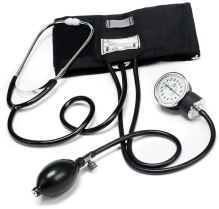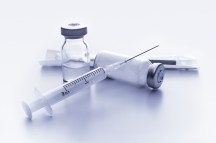H. Psychological, Social, and Serious Physical Difficulties
“Sleep deprivation, and poor sleep quality also increase the likelihood of interpersonal problems and psychiatric illness. While many students are able to function well in school with shorter amounts of sleep, they may pay a price in other ways such as emotional instability, argumentativeness, and disturbed social interactions.” (2)—Edward O’Malley, Ph.D., Assistant Professor of Medicine, New York University School of Medicine, Director, Norwalk Hospital Sleep Disorders Center, Mary O’Malley, M.D., Ph.D., Clinical Instructor, Department of Psychiatry, New York University, Fellowship Director, Norwalk Hospital Sleep Disorders Center.
Sleep deprived adolescents are more prone to headaches (509) and acute illness, (135) such as colds, flu, and gastroenteritis. (510) The immune system is compromised by restricted sleep. (135, 440) Eveningness chronotypes (i.e., “owls”) are more likely to report physical injury or emotional upset. (332) Teens virtually incapable of falling asleep much before midnight, even under the most supportive of parental/familial conditions, (333) appear to be at particular risk for mental health problems. (35, 250.1)
The primary emotional changes following sleep loss suggest a “decrease in the ability to control, inhibit, or modify emotional responses to bring them into line with long-term goals, social rules, or other learned principles.” (220)  Sleep deprived teenagers are “more often moody, irritable, and cranky, and are more likely to get frustrated or upset more easily.” (Mindell & Owens, Clinical Guide to Pediatric Sleep: Diagnosis and Management of Sleep Problems (Lippincott Williams & Wilkins, 2nd ed. 2010) p. 258.) Adequate sleep “is to self-regulation what gasoline is to a car—it’s our fuel.” (390) CAREI Director Kyla Wahlstrom notes that students at later starting schools “regulate their emotions better.” (350)
Sleep deprived teenagers are “more often moody, irritable, and cranky, and are more likely to get frustrated or upset more easily.” (Mindell & Owens, Clinical Guide to Pediatric Sleep: Diagnosis and Management of Sleep Problems (Lippincott Williams & Wilkins, 2nd ed. 2010) p. 258.) Adequate sleep “is to self-regulation what gasoline is to a car—it’s our fuel.” (390) CAREI Director Kyla Wahlstrom notes that students at later starting schools “regulate their emotions better.” (350)
According to Ronald Dahl, M.D., Professor of Community Health & Human Development at the University of California, sleep loss takes a toll on emotions, perhaps prompting some of the “quicksilver changes” seen in adolescence. (Smolensky & Lamberg, The Body Clock: Guide to Better Health (Henry Holt & Co., 2000) p. 88.) “‘If faced with a frustrating task, … a sleep-deprived teenager is more likely to become angry or aggressive. … The potentially fragile underpinnings of adolescent social competence, controlling thoughts and feelings at the same time, … may be most sensitive to the effects of inadequate sleep.’” (Ibid.) As previously noted (§ III, supra), a 2010 study of young adults (17-24) found a “linear association between sleep durations of less than eight hours and psychological distress.” (136, 143)
“[O]ne of the major concerns regarding the co-occurrence of sleep and mood problems in adolescents is that it can contribute to a ‘negative spiral’ in school and social functioning. For example, late night and erratic schedules and early school start times can lead to sleep deprivation, which in turn can erode mood and motivation. Difficulties with mood, motivation, and school performance create greater stress and affective problems. The negative affective experiences further interfere with sleep and arousal regulation and circadian effects and lead to difficulty falling asleep, more erratic schedules, and additional deterioration across these systems.” (21)
One-fourth to one-half of adolescents report experiencing insomnia for periods of 1 to 4 years. (386, see, § III.B., supra.) A 12-month prospective study demonstrated that insomnia in younger adolescents significantly increased the risk for subsequent declines in social, psychological, physical, and mental health. (386)  “[T]he burden of insomnia among adolescents is comparable to that of other major psychiatric disorders such as mood disorders, anxiety disorders, disruptive disorders and substance abuse.” (386) “In the emotional domain, prospective studies indicate that half of all lifetime mental disorders start by 14 years of age, and evidence indicates that sleep problems in teens predict worse mental health.” (146)
“[T]he burden of insomnia among adolescents is comparable to that of other major psychiatric disorders such as mood disorders, anxiety disorders, disruptive disorders and substance abuse.” (386) “In the emotional domain, prospective studies indicate that half of all lifetime mental disorders start by 14 years of age, and evidence indicates that sleep problems in teens predict worse mental health.” (146)
“[O]ne of the most common causes of insomnia in this age group derives from sleep–wake schedule problems. Adolescents, and especially E[vening]-types, may experience extraordinary difficulty adjusting to the early demands of school schedule. Their optimal bedtime may coincide with the so-called ‘forbidden zone’ of the circadian system making it quite impossible to fall asleep at the desired bedtime. This can lead to difficulty in falling asleep, adolescents experience anxiety about getting sufficient sleep and consequently perceive a poor sleep quality.” (332)
 The number of psychotropic medication fills to address mental health issues in children nearly doubled between 1996 and 2008. (502) According to William Stixrud, a specialist in the evaluation of children with learning disabilities and an Assistant Clinical Professor of Psychiatry and Behavioral Sciences at George Washington University School of Medicine, “No discussion of medication is complete without a discussion of the many kids who wouldn’t need them if the lifestyle adults structured wasn’t so brain-unfriendly.” (503)
The number of psychotropic medication fills to address mental health issues in children nearly doubled between 1996 and 2008. (502) According to William Stixrud, a specialist in the evaluation of children with learning disabilities and an Assistant Clinical Professor of Psychiatry and Behavioral Sciences at George Washington University School of Medicine, “No discussion of medication is complete without a discussion of the many kids who wouldn’t need them if the lifestyle adults structured wasn’t so brain-unfriendly.” (503)
Stixrud’s list of what schools could offer to help teens includes:
“[L]ater school start times; homework policies that reduce assignments at night, when mental efficiency is low; balancing course loads to keep stress manageable; and, physical outlets, such as exercise and meditation, to help students manage tension. These changes would … ‘make kids happier, learn better and have fewer mental problems.’ ” (503)
Students surveyed as part of CAREI‘s 2014 three-state study were more likely to say they have good overall health when their classes began at 8:30 a.m. or later. (309)
Hypertension (Elevated Blood Pressure)
 A study of 238 adolescents found a 3.5-fold increased risk of prehypertension or hypertension in children with low sleep efficiency (i.e., recurrent arousals or awakenings from sleep) and a 2.5-fold increased risk of hypertension in children with short sleep duration (<6.5 hours). (137) The researchers note that childhood hypertension is associated with hypertension in adulthood, a risk factor for cardiovascular disease incidence and death. It also is associated with end-organ damage, notably left ventricular hypertrophy, in both children and adults. (137)
A study of 238 adolescents found a 3.5-fold increased risk of prehypertension or hypertension in children with low sleep efficiency (i.e., recurrent arousals or awakenings from sleep) and a 2.5-fold increased risk of hypertension in children with short sleep duration (<6.5 hours). (137) The researchers note that childhood hypertension is associated with hypertension in adulthood, a risk factor for cardiovascular disease incidence and death. It also is associated with end-organ damage, notably left ventricular hypertrophy, in both children and adults. (137)
Diabetes
 A recent study of 245 adolescents between 14 and 19 years of age from low to middle income backgrounds found the teens averaged 6.4 hours sleep per night on school nights as measured by actigraphy. (138) Linear regression analyses adjusted for age, race, gender, body mass index, and waist circumference showed that the shorter the sleep, the higher the insulin resistance. (138)
A recent study of 245 adolescents between 14 and 19 years of age from low to middle income backgrounds found the teens averaged 6.4 hours sleep per night on school nights as measured by actigraphy. (138) Linear regression analyses adjusted for age, race, gender, body mass index, and waist circumference showed that the shorter the sleep, the higher the insulin resistance. (138)
In discussing the study’s results, lead author Karen Matthews, Director of the Pittsburgh Mind-Body Center and Professor of multiple disciplines at the University of Pittsburgh School of Medicine, observed, “High levels of insulin resistance can lead to the development of diabetes. We found that if teens that normally get six hours of sleep per night get one extra hour of sleep, they would improve insulin resistance by 9 percent.” (139) ”[S]hort sleep during the school week was associated with elevated insulin resistance in adolescents, independent of age, race, gender, and adiposity. … To the extent that short sleep leads to elevated insulin resistance, interventions designed to extend short sleepers may be beneficial for metabolic health in adolescence and beyond.” (138)
Cardiovascular Risk
 A study of 4,104 Canadian adolescents found the teens averaged 7.9 hours sleep on weeknights and 9.4 hours on weekends. (140) 19% of participants reported their sleep quality as fairly bad or very bad on weeknights and 10% reported it as fairly bad or very bad on weekends. (140) The researchers “found an association between sleep disturbance and cardiovascular risk in adolescents, as determined by high cholesterol levels, increased BMI and hypertension. These findings are important, given that sleep disturbance is highly prevalent in adolescence and that cardiovascular disease risk factors track from childhood into adulthood.” (140)
A study of 4,104 Canadian adolescents found the teens averaged 7.9 hours sleep on weeknights and 9.4 hours on weekends. (140) 19% of participants reported their sleep quality as fairly bad or very bad on weeknights and 10% reported it as fairly bad or very bad on weekends. (140) The researchers “found an association between sleep disturbance and cardiovascular risk in adolescents, as determined by high cholesterol levels, increased BMI and hypertension. These findings are important, given that sleep disturbance is highly prevalent in adolescence and that cardiovascular disease risk factors track from childhood into adulthood.” (140)
Secondary Brain Development
As previously noted (§ II.A., supra), “sleep seems to be particularly important during periods of brain maturation.” (220) During adolescence, “sleep becomes shallower and shifts to later hours, reflecting extensive brain rewiring.” (504) A 2011 brain MRI study of 290 healthy Japanese children aged 5-18 years found weeknight sleep duration “significantly positively correlated with the regional gray matter volume of the bilateral hippocampus,” suggesting “sufficient sleep has a beneficial effect on the hippocampus.” (505)

By contrast, periodic severe sleep disruption may have a “permanent and cumulative effect in this anatomical region[.]” (506) REM deprivation is more harmful in this process than that of NREM sleep. (506) As noted previously (§ III, supra),
“The issue of under-sleeping in adolescents takes on added significance when one considers that waking up too early costs the sleeper mostly REM sleep which predominates during the last two to three hours of a night’s sleep.” (2)
The secondary development of the brain that begins in puberty may suffer sleep-deprivation’s “most significant impact[.]” (64; see also, Terman & McMahan, Chronotherapy: Resetting Your Inner Clock to Boost Mood, Alertness, and Quality Sleep (Penguin Group 2012) p. 200 [sleep loss interferes with development and functioning of prefrontal cortex].) It has now been “clearly established that both sleep loss and disrupted sleep, or ‘sleep fragmentation,’ have a detrimental effect on children’s neurocognitive development.” (508)
“When certain genes are activated by sleep deprivation or abnormal sleep-wake cycles, adverse changes may occur in neurodevelopment and behaviour, especially in young children. … [¶] Sleep deprivation, depending on the severity, leads to genetic, cellular, metabolic, electrical, neurotransmitter and other changes. Prolonged sleep loss causes cellular stress and when the defence mechanisms are no longer able to cope, permanent neuronal damage may occur. The effects of cellular stress may be cumulative throughout life.” (506, italics added.)
Recent mouse model studies suggest the “restorative function” of sleep may be a consequence of the enhanced removal of potentially neurotoxic waste products that accumulate in the central nervous system. (509) A 2013 study found that during sleep, the flow of cerebrospinal fluid in the brain increases dramatically, washing away harmful waste proteins that build up between brain cells during waking hours. (509) Toxins accumulating in the brain include pieces of the proteins that cause dementia. (509) Sleep opens spigots that bathe the brain in fluids, washing away the potentially toxic buildup. (509, 510) This cleansing process may explain both the foggy mind that follows a sleepless night and death stemming from total sleep deprivation. (509, 510)
“The purpose of sleep has been the subject of numerous theories since the time of the ancient Greek philosophers. An extension of the findings reported here is that the restorative function of sleep may be due to the switching of the brain into a functional state that facilitates the clearance of degradation products of neural activity that accumulate during wakefulness.” (509, citation omitted.)
A 2014 study from Uppsala University, Sweden, found that in young men, a sleepless night increased blood concentrations of the molecules NSE and S-100B in the morning. (511) These chemicals normally rise in blood under circumstances of brain damage such as concussions. (511, 512) The increases in NSE and S-100B following a sleepless night suggest lack of sleep may be indirectly responsible for brain tissue loss. (512) Lead author Christian Benedict reports, “our results indicate that a lack of sleep may promote neuro degenerative processes. [T]he findings of our trial indicate a good night’s sleep may be critical for maintaining brain health[.]” (512)
A 2014 Penn Medicine study appears to show “disturbing evidence” that chronic sleep loss may “lead to irreversible physical damage to and loss of brain cells.” (513) Using a mouse model of chronic sleep loss, researchers determined that extended wakefulness is linked to injury to, and loss of, neurons essential for alertness and optimal cognition, the locus coeruleus (LC) neurons. (513, 514) After several days of shift worker sleep patterns, LC neurons in the mice began to display reduced sirtuin type 3 protein, increased cell death, and a 25% neuron loss. (513, 514) The findings suggest that “mitochondria in LC neurons can adapt to short-term sleep loss but not to extended wakefulness.” (513)
The study is the first to show that sleep loss can actually result in a loss of neurons. (513, 514) Further work will be required to determine whether a similar phenomenon occurs in humans and to determine what durations of wakefulness place individuals at risk of neural injury. (513) One of the study’s researchers, Sigrid Veasey, M.D., an associate professor of Medicine and a member of the Center for Sleep and Circadian Neurobiology at the Perelman School of Medicine, reports:
“In general, we’ve always assumed full recovery of cognition following short- and long-term sleep loss[.] But some of the research in humans has shown that attention span and several other aspects of cognition may not normalize even with three days of recovery sleep, raising the question of lasting injury in the brain. [¶] In light of the role for SirT3 in the adaptive response to sleep loss, the extent of neuronal injury may vary across individuals. Specifically, aging, diabetes, high-fat diet and sedentary lifestyle may all reduce SirT3. If cells in individuals, including neurons, have reduced SirT3 prior to sleep loss, these individuals may be set up for greater risk of injury to their nerve cells.” (513)
In an ongoing collaboration with Peking University scientists, the team plans to examine shift workers post-mortem for evidence of increased LC neuron loss and signs of neurodegenerative disorders such as Alzheimer’s and Parkinson’s, since some previous mouse models have shown that lesions or injury to LC neurons can accelerate the course of those diseases. (513) Dr. Veasey observes that while not directly causing these diseases, “injuring LC neurons due to sleep loss could potentially facilitate or accelerate neurodegeneration in individuals who already have these disorders[.] No one really thought that the brain could be irreversibly injured from sleep loss. It’s now clear that it can be.” (513)

